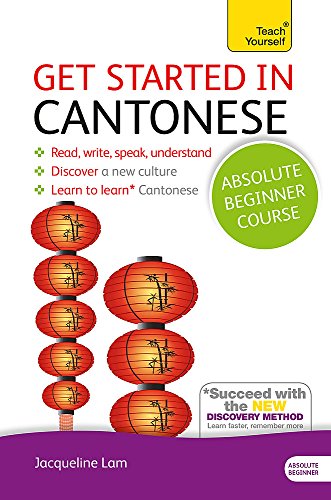Everything You Need To Learn Cantonese
As one of the major languages of China, Cantonese 《粵語 (Yue) is spoken by over 80 million people.
The Cantonese language was originally developed as a trade dialect among merchants and sailors from Guangzhou. In modern times, it can be heard not only in Guangdong, but also across Hong Kong, Macau and other Chinese regions, as well as in other countries like Canada, the United States and Australia.
Cantonese uses traditional Chinese characters, in contrast to the simplified characters used for Mandarin. It’s also a tonal language, in that a change in pitch can completely alter the meaning.
Choosing to learn Cantonese over Mandarin does somewhat limit your options in terms of learning materials, as most language course providers tend to focus on the latter.
Luckily, there’s still a wealth of Cantonese resources that are widely available internationally, and we’ve put together a list of them.
Cantonese Language Learning Books
Whether you decide to start out with written Cantonese courses in book form, or you choose to focus on only learning to speak the language, a Cantonese study book is still an invaluable resource.
This includes things like English-Cantonese dictionaries, phrasebooks and grammar books, all of which offer insight and help in learning the Cantonese language, insights you simply wouldn’t get from an audio course alone.
The ideal Cantonese dictionary would be one that includes transliteration, so that you can easily read and pronounce the Chinese characters.
Though the task may seem daunting, you might also want to learn how to read and write in Cantonese, which is a whole ‘nother ball game, but one that’s well worth it. Getting a book that focuses on the writing alone will come in very handy here.
Cantonese Children’s Books
Believe it or not, reading Cantonese children’s books is a highly effective method of familiarizing yourself with the language. Cantonese books written for kids use simplified language that’s easy to understand, and usually have plenty of colorful pictures, making vocabulary more memorable.
You’ll pick up on Cantonese sentence structure and grammar, as well as common words and phrases, all of which will help you to speak the language with greater ease. That’s why we recommend that beginners read Cantonese children’s books, if they’re dedicated to developing all Cantonese skills.
Cantonese Movies & TV Shows
Listening to stories or watching movies in Cantonese is an excellent way of developing not only your listening comprehension, but your vocabulary. This is one of the more enjoyable ways of getting Cantonese words and phrases to stick, as the visual cues associated with the words you hear will help you to remember them.
Cantonese TV and movies also give you plenty of colloquialisms and phrases that you might not otherwise hear in basic conversation or books, which makes them a great resource for picking up on those bits of Cantonese that make the language more colorful.
Cantonese Digital Courses
Nowadays, there are tons of digital courses that can help you to learn Cantonese. These are great if you don’t have the time to dedicate to attending a course, or simply want more flexibility in your learning schedule.
Cantonese e-courses are widely available, and are typically either downloadable or web-based. They’re very affordable, too.
Both Udemy and Pimsleur offer highly regarded Cantonese language courses that you can use on almost any smart device. While Pimsleur’s is mostly audio-based, Udemy’s Cantonese course uses a wider variety of materials, including videos.
CANTONESE UDEMY COURSES
CANTONESE AUDIO COURSES
Pimsleur Conversational Cantonese Chinese: Audio Course
$37.48
























![Donnie Yen 3 Movie Collection: Cantonese Language Action Movie [DVD]](https://m.media-amazon.com/images/I/51GyePZn3CL.jpg)
![Black Dragon: Cantonese and Mandarin Movie [DVD]](https://m.media-amazon.com/images/I/51AS0NBA9QL.jpg)



